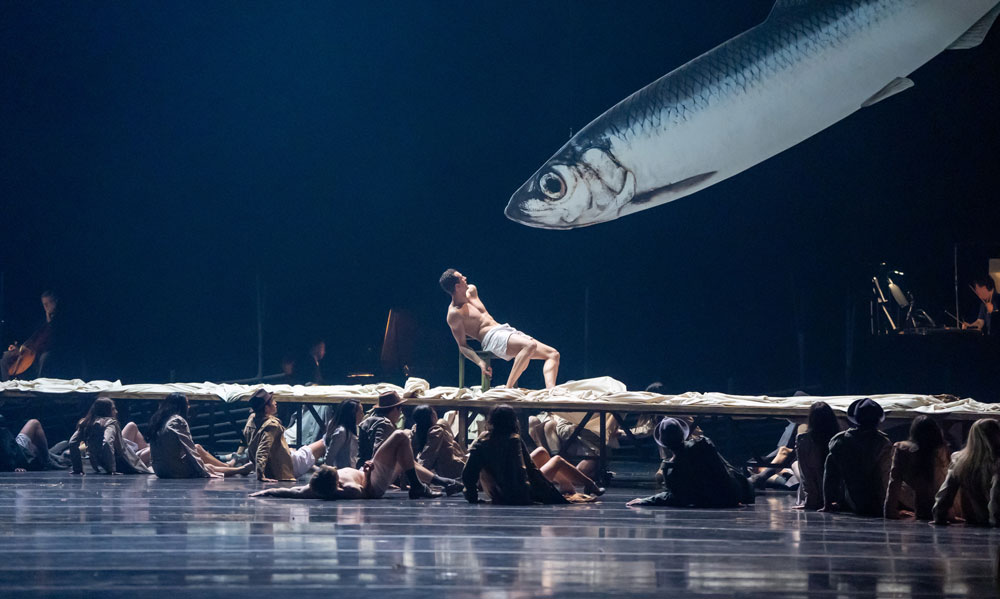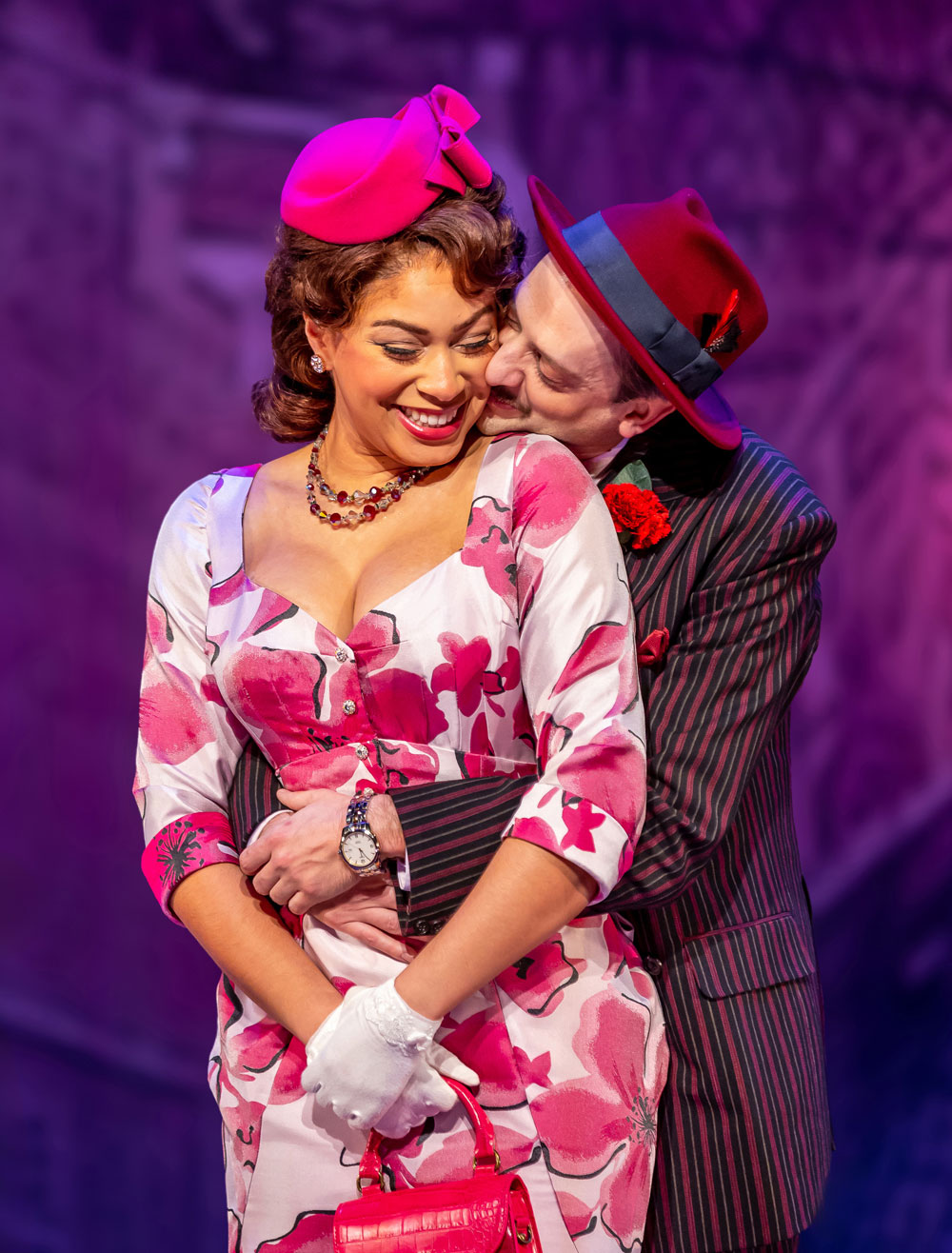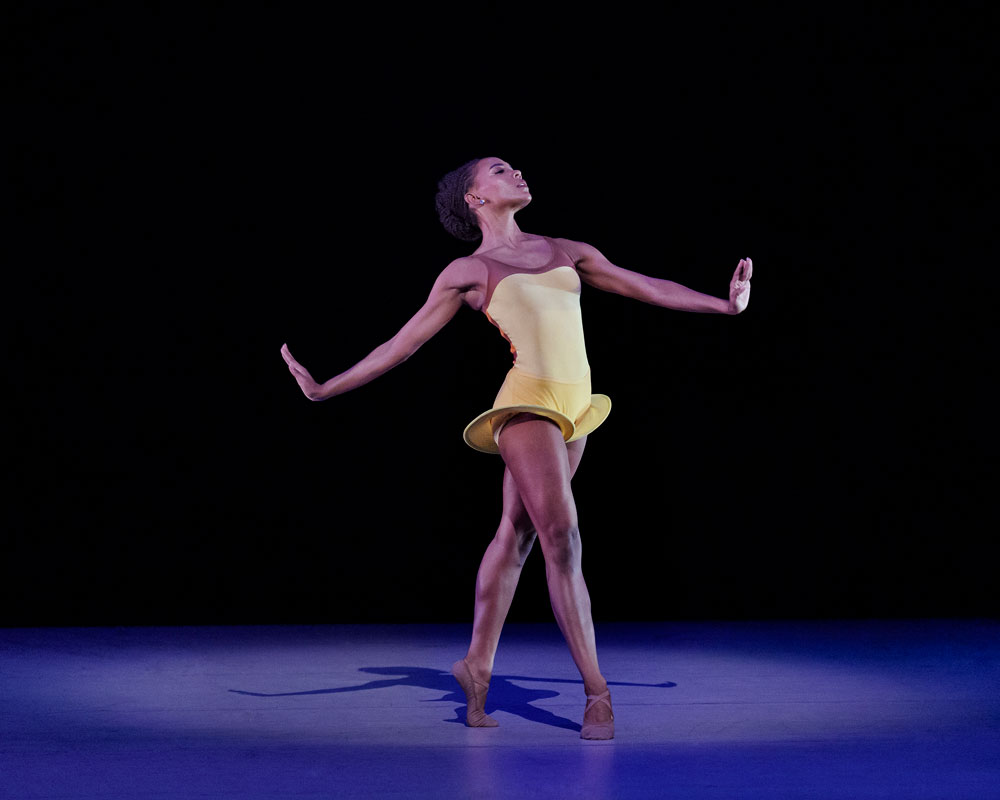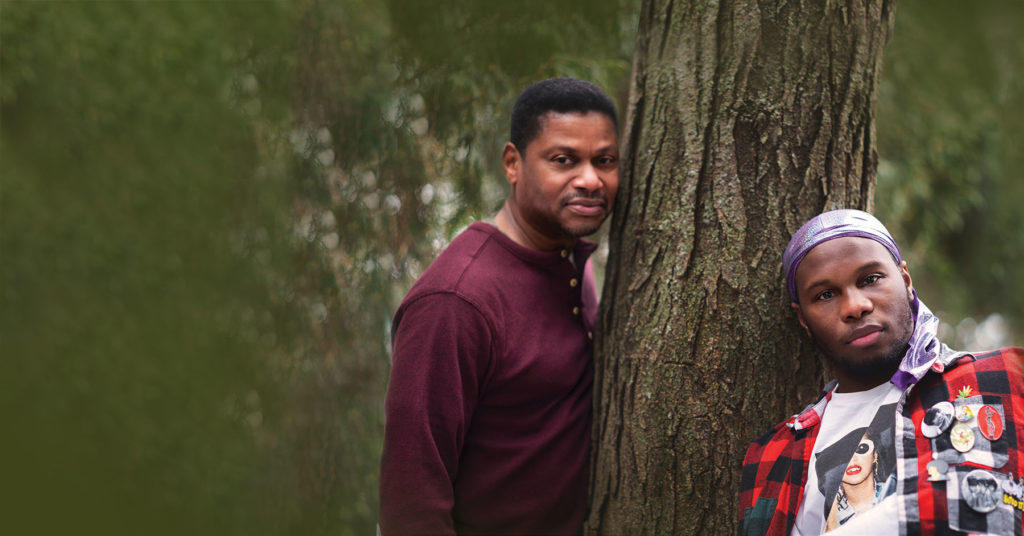
Adult children venting to their parents about how they were mistreated growing up seems to have become a thing on stage as well as on film. If the outcome of spilling all that angst is as beautiful as the relationship between Tyler and his dad Stephen in Queen of the Night, now playing on Victory Garden’s Christiansen stage, it’s well invested catharsis.
A play that you feel joy for just because you’d never expect to see something it produced, Queen of the Night is an intimate, compassionate and hopefully reasonably realistic look of what love can look like between a father and son. Because they’re Black and Tyler is so gay shouldn’t make them seem unconventional or atypical, but it does. A lack of exposure and representation can lead to a lot of ignorance. Playwright Travis Tate reveals a side of Black family relationships that widen the prevailing narratives about how they talk to and try to understand one another.
The audience takes up with the pair as they’re setting up camp deep in the woods. The scene has a warm feel as dusk falls on an idyllic wooded paradise. A clearing surrounded by overhanging leaves, the scene exudes a natural peacefulness. Twining vegetation enveloping the stage is extended to cover the overhead piping in the playhouse’s second floor theater; pulling the audience into the story’s secluded and welcoming atmosphere.
What we don’t expect is Tyler (Terry Guest). Completely free, his ebullience is as disarming as an out- of- the-blue kindness. Delightfully ingratiating and the antithesis of manly, he’s a young man who knows himself and rejoices in who he is. It’s impossible for the audience not to be smitten with him. Radiating unfettered enthusiasm and candor, Guest makes his character inescapably appealing. As George Johnson confided in his memoir, All Boys Aren’t Blue, being different is normal. Listening to Tyler at the opening of the play, we’re left to wonder where this story is going to lead with this very non-blue boy.
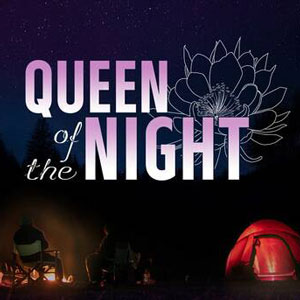
Another surprise crystallizes when Tyler’s father makes his entrance. From everything we see in his interactions with Tyler, Stephen (André Teamer) could be Beaver Cleaver’s dad. A wellspring of gratitude seems to lie at his core. Tyler likes to kid and tease, but his father fends off his son’s assaults with easy tolerance. He’s more interested in the being there aspect of their adventure and taking advantage of the time they’re spending together. His is hardly the demeanor you’re conditioned to anticipate of a father with a son like Tyler. There’s no discernible disappointment or simmering resentment as he listens to his effeminate son relate and talk to him with such unguarded ease. Their back and forth has the natural rhythm you’d find in friendships.
This outing was intended to do more than recall earlier days when Stephen took his two sons on camping trips when they were young. It was also to act a reunion between the father and his sons on the eve of his ex-wife’s, his sons’ mother’s, re-marriage. Only Tyler agreed to join his father camping. Their eventual discussion of the upcoming wedding and why the second son chose not to join them paved the road to the story’s convulsive revelations.
Rarely are shared experiences remembered the same way between everyone involved. Stephen thought his idealized memories of those early camping days were held by both of his sons. That error provided the spark to unleash the insecurities and resentments that Tyler had been stifling since childhood. He told his father of how he felt being compared to a brother who was the right kind of son. The kind of son who wasn’t different and could do the masculine things that would gratify a typical dad. And he disclosed that even the son that could do and be the things Stephen wanted had no interest in camping and never had. Tyler’s aim was not to hurt his father; but to reveal long-suppressed truths. This one turned into an opportunity for each of them to confess the cost of surviving pain and disappointment. Tyler’s use of therapy to strengthen his understanding and acceptance of self seems merely prudent and responsible. However, to his surprise and ours, his father also embraced psychotherapy to weather the grief of his mother’s death and as an assist to surmount powerful life challenges.
Traditionally, religious faith, the security of a steadfast family bond or the presence of that one true friend would act as the buttress that sustained faltering resolve; particularly in the Black community. By revealing how talk therapy reached and benefited both Tyler and his father, Tate’s story proves the path to renewed connections keeps expanding.
Queen of the Night
Through March 13, 2022
Victory Gardens Theater
2433 N. Lincoln Ave.
Chicago, IL 60614
www.victorygardenstheater.org
